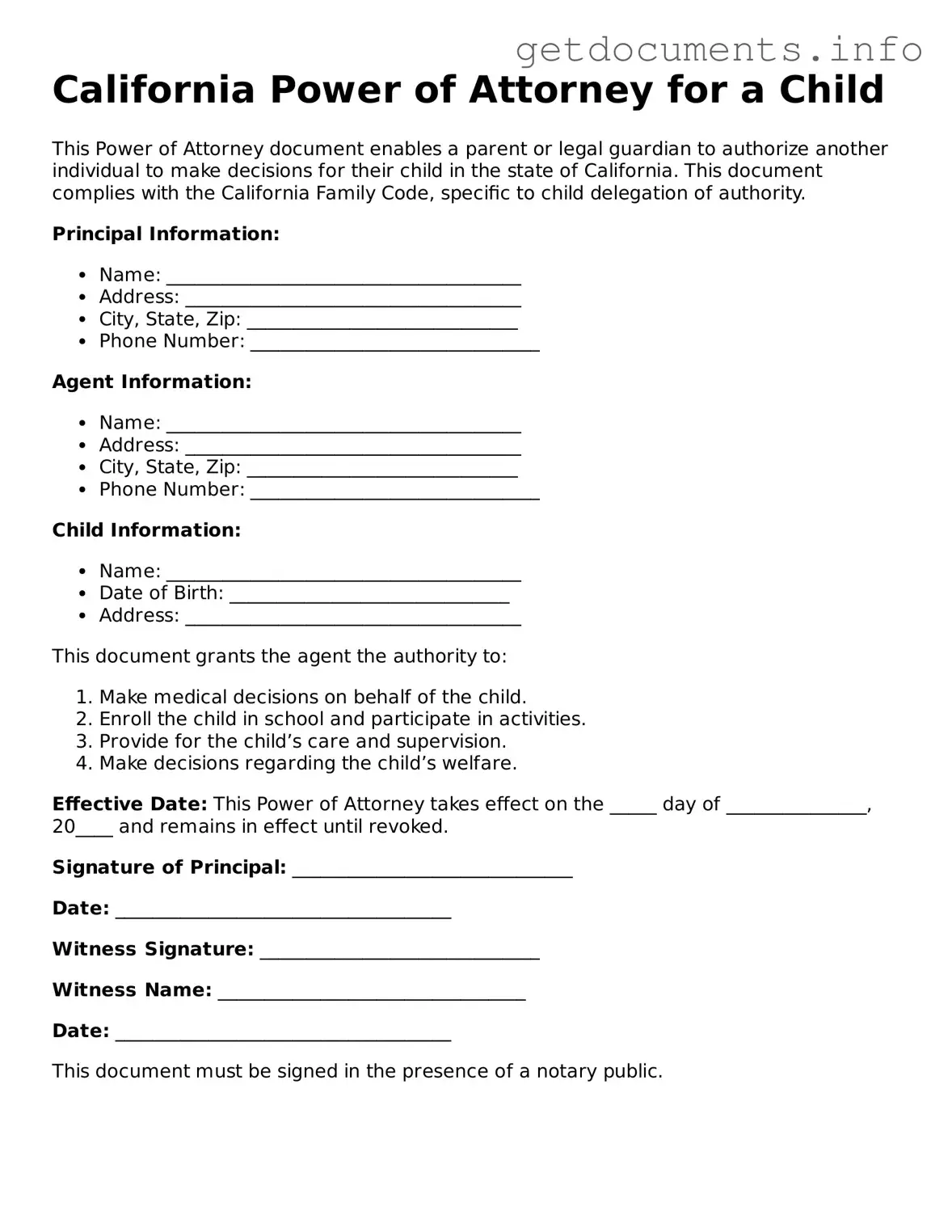Free Power of Attorney for a Child Template for California
The California Power of Attorney for a Child form is a legal document that allows a parent or guardian to grant another adult the authority to make decisions on behalf of their child. This form can be crucial in situations where the parent or guardian is unavailable, ensuring that the child's needs are met without delay. To take the next step in securing your child's care, consider filling out the form by clicking the button below.
Access Power of Attorney for a Child Editor

Free Power of Attorney for a Child Template for California
Access Power of Attorney for a Child Editor
Got places to be? Complete the form fast
Fill out Power of Attorney for a Child online and avoid printing or scanning.
Access Power of Attorney for a Child Editor
or
⇩ PDF File
